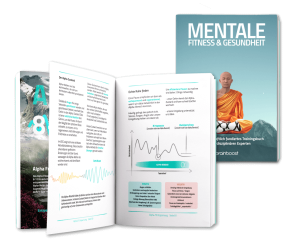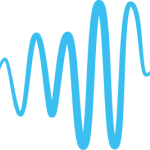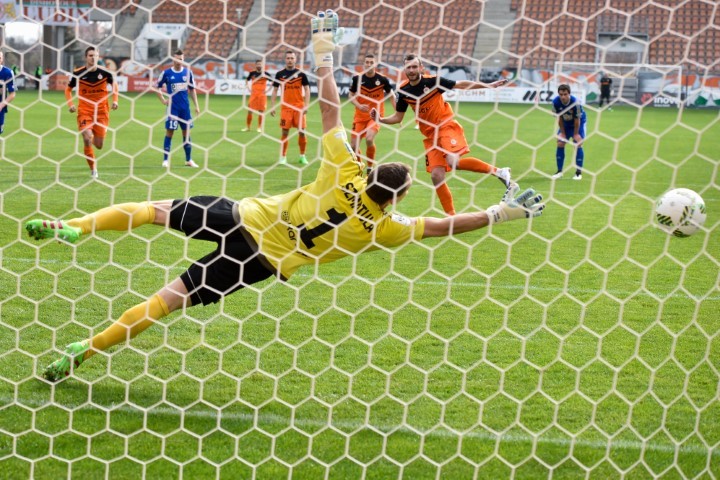Practice for Neurofeedback Munich
– Philipp Heiler –
Our own Book (only in German)
Mental Fitness & Health
Understanding and training our brain for greater well-being and balance.
180 pages | 8 chapters | Daily exercises
More infos
Now available
Bewertung wird geladen…Praktische Ärzte
in München
Philipp HeilerPraktische Ärzte
in München auf jameda
NEW // Our book (only in German)

Mental Fitness & Health
Understand and train our brains for greater well-being & balance.
180 pages | 8 chapters | Daily Exercises.
Neurofeedback Experts from Munich
Neurofeedback to cure mental illnesses – without medication – for children and adults
-
for ADHD, ADD, depression, burnout, autism, sleep disorders, etc.
-
to increase performance & concentration
-
painless and without medication
-
interdisciplinary team of a doctor, psychologists and sports scientists
- over 3000 treatments per year
089 2154 3616
info@praxis-heiler.de
Mo-Fr: 7am – 9pm
Augsburgerstraße 4 – 80337 Munich
schedule appointmed now
schedule appointmed now
Our practice
In the practice for neurofeedback in Munich – directly at the Sendlinger Tor – I, Philipp Heiler – licensed physician, have specialized exclusively in neurofeedback with my team. My team and I are constantly striving for the highest quality in neurofeedback therapy for our patients.
Our interdisciplinary team of psychologists and sports scientists, under my medical direction, looks forward to helping you with your concerns.
Research & Development
In addition to our medical practice, we develop many components of neurofeedback ourselves with our cooperation partner brainboost.
We are doing pioneering work, especially in the area of feedback solutions. For example, we have developed individual environments in Virtual Reality. This allows us to simulate stress situations (e.g. examination anxiety or nervous conditions during lectures) and to use them as a training environment for the neurofeedback session.
Our promise of quality
We stand for highest quality and expertise in the field of medical neurofeedback
-
full specialization in Neurofeedback & EEG-Analysis
-
scientific background with own neurofeedback research & development
-
full specialization in Neurofeedback & EEG-Analysis
-
scientific background with own neurofeedback research & development
-
individual medical training protocols & advice from a doctor, psychologist and sports scientist
-
highest quality through latest neurofeedback software and hardware (virtual reality training possible)
-
individual medical training protocols & advice from a doctor, psychologist and sports scientist
-
highest quality through latest neurofeedback software and hardware (virtual reality training possible)
How does Neurofeedback Therapy work?
A training method for self-regulation of unconscious processes in the brain – without medication
Step 1
First consultation & qEEG
- In a 90-minute initial consultation, an exact anamnesis of your individual problems will be carried out using EEG
Step 2
Neurofeedback Training
- Depending on the clinical picture, a training duration of 15 – 20 sessions is recommended
- 1 – 2 sessions per week
Step 3
Debriefing
- Your therapy successes will be discussed regularly
- We will gladly take the necessary time for you
Neurofeedback is a technically supported, scientifically based type of brain training. The positive effect of neurofeedback has been proven for years in science and practice in a number of psychologically conditioned clinical pictures such as depression or ADHD. But also in competitive sports, music or in top management neurofeedback is increasingly used as a natural method for increasing concentration and coping with stress.
60 min. per session
1 – 2 sessions per week
sustainable effects from approx. 10 sessions
individual training protocols
Neurofeedback therapy procedure
Neurofeedback therapy procedure
Treatable clinical pictures
The therapy can help both children and adults
ADHD / ADD
Depression
Burnout
Epilepsy
PTSD
Chronic stress
Nicotine addiction
Migraine
ADHD / ADD
Neurofeedback has been used for decades for the treatment of both ADHD and ADD. In many cases, an existing medication can be significantly reduced and often completely stopped. The therapeutic effect is often noticeable after just a few sessions and can last a lifetime. The trainee learns a better and more arbitrary control over his mental and physical activity. This is possible for affected children as well as adults. Further information
Depression
Depression often remains undetected for a long time or is very mild. Nevertheless, it has strong effects on well-being. Furthermore, concrete starting points are difficult to find and to treat. Medical treatment is often an important first step. As a further or even sole therapeutic approach, neurofeedback can identify, break up and specifically treat internal blockages and imbalances. Thus neurofeedback is able to work through unconscious problem areas, to improve body awareness and sleep and to stabilize the emotional balance again. Further information
Burnout
Neurofeedback training not only enables the reduction of existing stress and the associated limitations, but can also be used for prevention. As part of prevention, early stages of burnout can be localized and treated, and resistance to further stress and the ability to relax can be improved. Further information
Epilepsy
The treatment of epilepsy represents the birth of neurofeedback therapy. Nevertheless, neurofeedback training has been continuously improved for 50 years. The brain is trained so that epileptic seizures occur less often or in some cases no longer at all. The occurrence of auras can also be reduced and attention can be improved as a side effect. In many cases, medication can be reduced or discontinued during the course of training. Further information
PTSD
A post-traumatic stress disorder – PTSD – can result from events that have occurred or have been observed. Whether accidents, family tragedies or military operations, such trauma can manifest itself in many forms. Especially in close cooperation with a conversation or trauma therapy, neurofeedback can overcome internal barriers and can also be worked through in the long term. Further information
Chronic stress
Sooner or later the quality of life suffers considerably due to permanent pressure situations. Neurofeedback can be used to treat chronic stress and also raise awareness of various states of stress. This will help to identify stress situations more quickly in the future and thus actively counteract them. Further information
Nicotine addiction
Quitting smoking is stressful and strenuous. Anybody who’s ever tried that knows that. In order to control nicotine addiction, there are numerous therapies that can be actively supported by neurofeedback training. Further information
Migraine
10 to 15% of the world’s population suffer from migraine. Anyone who is affected knows that the pain can often only be partially relieved by the appropriate medication. With special neurofeedback trainings developed specifically for migraine patients, it is possible to significantly reduce the frequency of migraine attacks or to stop them completely. Migraine with accompanying aura can also be treated by neurofeedback. Further information
Autism
Insomnia
Dyslexia
Anxiety & panic attacks
Autism
Autism manifests itself primarily in social communication and interaction, but also in limited and recurring behavioural patterns. Establishing a relationship with other people is often harder for those affected than for people without autism. Further problems show up in the emotionality and the expression of their own interests and feelings, or generally with non-verbal communication. They may also be inflexible about changes, prefer familiar processes and routines and want to stick to them. Further information
Insomnia
A restful sleep is essential for performance and the quality of life. Neurofeedback makes it possible to train the brain so that it can switch to a relaxation phase more quickly and efficiently and thus fall asleep better. It also teaches the brain to stay longer in the regeneration phase of sleep, leading to a healthier and more restful sleep overall. Further information
Dyslexia
Dyslexia can lead to learning problems at school from an early age. But even as an adult, it can cause limitations and often shame in many situations. We can support children and adults with neurofeedback by specifically training the language centre. This improves the ability to read and spell. Further information
Anxiety & panic attacks
Anxiety attacks and panic attacks often occur after traumatic experiences, but in many cases also for no obvious reason. Moreover, the exact time of these attacks is often unpredictable. Neurofeedback treatment can help here. Because it is possible to break open subconscious fears or worries and thus to treat them. This is often the only way to gain access to the origin of anxiety/panic attacks. Further information
ADD / ADHD
Neurofeedback has been used for decades for the treatment of both ADD and ADHD. In many cases, an existing medication can be significantly reduced and often completely discontinued. The therapeutic effect is often noticeable after just a few sessions and can last a lifetime. The trainee learns a better and more arbitrary control over his mental and physical activity. This is possible for affected children as well as adults. Further information
Depression
Depression often remains undetected for a long time or is very mild. Nevertheless, it has strong effects on well-being. Furthermore, concrete starting points are difficult to find and to treat. Medical treatment is often an important first step. As a further or even sole therapeutic approach, neurofeedback can identify, break up and specifically treat internal blockages and imbalances. Thus neurofeedback is able to work through unconscious problem areas, to improve body awareness and sleep and to stabilize the emotional balance again. Further information
Burnout
Neurofeedback training not only enables the reduction of existing stress and the associated limitations, but can also be used for prevention. As part of prevention, early stages of burnout can be localized and treated, and resistance to further stress and the ability to relax can be improved. Further information
PTSD
A post-traumatic stress disorder – PTSD – can result from events that have occurred or have been observed. Whether accidents, family tragedies or military operations, such trauma can manifest itself in many forms. Especially in close cooperation with a conversation or trauma therapy, neurofeedback can overcome internal barriers and can also be worked through in the long term. Further information
Chronic stress
Sooner or later the quality of life suffers considerably due to permanent pressure situations. Neurofeedback can be used to treat chronic stress and also raise awareness of various states of stress. This will help to identify stress situations more quickly in the future and thus actively counteract them. Further information
Nicotine addiction
Quitting smoking is stressful and strenuous. Anybody who’s ever tried that knows that. In order to control nicotine addiction, there are numerous therapies that can be actively supported by neurofeedback training. Further information
Migraine
10 to 15% of the world’s population suffer from migraine. Anyone who is affected knows that the pain can often only be partially relieved by the appropriate medication. With special neurofeedback trainings developed specifically for migraine patients, it is possible to significantly reduce the frequency of migraine attacks or to stop them completely. Migraine with accompanying aura can also be treated by neurofeedback. Further information
Autism
Autism manifests itself primarily in social communication and interaction, but also in limited and recurring behavioural patterns. Establishing a relationship with other people is often harder for those affected than for people without autism. Further problems show up in the emotionality and the expression of their own interests and feelings, or generally with non-verbal communication. They may also be inflexible about changes, prefer familiar processes and routines and want to stick to them. Further information
Insomnia
A restful sleep is essential for performance and the quality of life. Neurofeedback makes it possible to train the brain so that it can switch to a relaxation phase more quickly and efficiently and thus fall asleep better. It also teaches the brain to stay longer in the regeneration phase of sleep, leading to a healthier and more restful sleep overall. Further information
Dyslexia
Dyslexia can lead to learning problems at school from an early age. But even as an adult, it can cause limitations and often shame in many situations. We can support children and adults with neurofeedback by specifically training the language centre. This improves the ability to read and spell. Further information
Anxiety & panic attacks
Anxiety attacks and panic attacks often occur after traumatic experiences, but in many cases also for no obvious reason. Moreover, the exact time of these attacks is often unpredictable. Neurofeedback treatment can help here. Because it is possible to break open subconscious fears or worries and thus to treat them. This is often the only way to gain access to the origin of anxiety/panic attacks. Further information
further information about treatable diseases
further information about treatable diseases
What our patients say
We are really thrilled! Our son suffers from ADHD and was treated very effectively here. Instead of being pumped full of drugs, the real problem is treated here. I can only warmly recommend the practice! (Translated)

Silvia H.
Rating via Google
[…] This practice is the most unusual thing I’ve ever seen. Who expects white gown and smell after antiseptic, not the case. But if you want a real interest in the patient, a very friendly reception, high competence and a good atmosphere, you have to come here.
[…] I cannot imagine that elsewhere a similar wealth of experience and competence can be found in this field.” (Translated)

Anonymous
Rating via Jameda
Praise to Philipp and his team. I’m so surprised how professional everything is there. The guys have been doing neurofeedback for a few years and you can tell. Especially the sessions with Virtual Reality are extremely helpful in everyday life. Been with various ADHD / ADD physicians and ergotherapists before, absolutely not comparable!
Keep it up Philipp 🙂 (Translated)

Sebastian M.
Rating via Google
With us you are in good hands
We accompany our patients from diagnosis to treatment to further therapy
Philipp Heiler is a licensed physician and certified neurofeedback therapist. In his practice he successfully treats children and adults with mental illnesses using neurofeedback. The individual, personal care of patients and the consistently high quality of treatment are particularly important to him. All neurofeedback protocols used are based on scientific data and studies tested by Philipp Heiler.
Our practice team
Our practice team
Neurofeedback for Peak Performance
In addition to medical indications, we also offer neurofeedback as mental training for executives and top athletes, among others
Neurofeedback as mental Fitnesstraining / Biohacking
is a training method for the self-regulation of unconscious processes in the brain. In addition to the primary application in the medical sector, e.g. ADHD, burnout and depression, neurofeedback is now increasingly used as objective mental training in the peak performance area. But not only top athletes, musicians, students and executives profit from this method. Neurofeedback can also be used very effectively for stress regulation or sleep disorders for everyone – even without medical indication.






For everybody
Professional athletes
Pupils & Students
Executives
Musician
more information about mental training
more information about mental training
Please contact us
We are subject to medical confidentiality and treat your data strictly confidential
By sending your message by clicking on the “Send” button, you accept our privacy policy. We are subject to medical confidentiality and treat your data strictly confidential.


